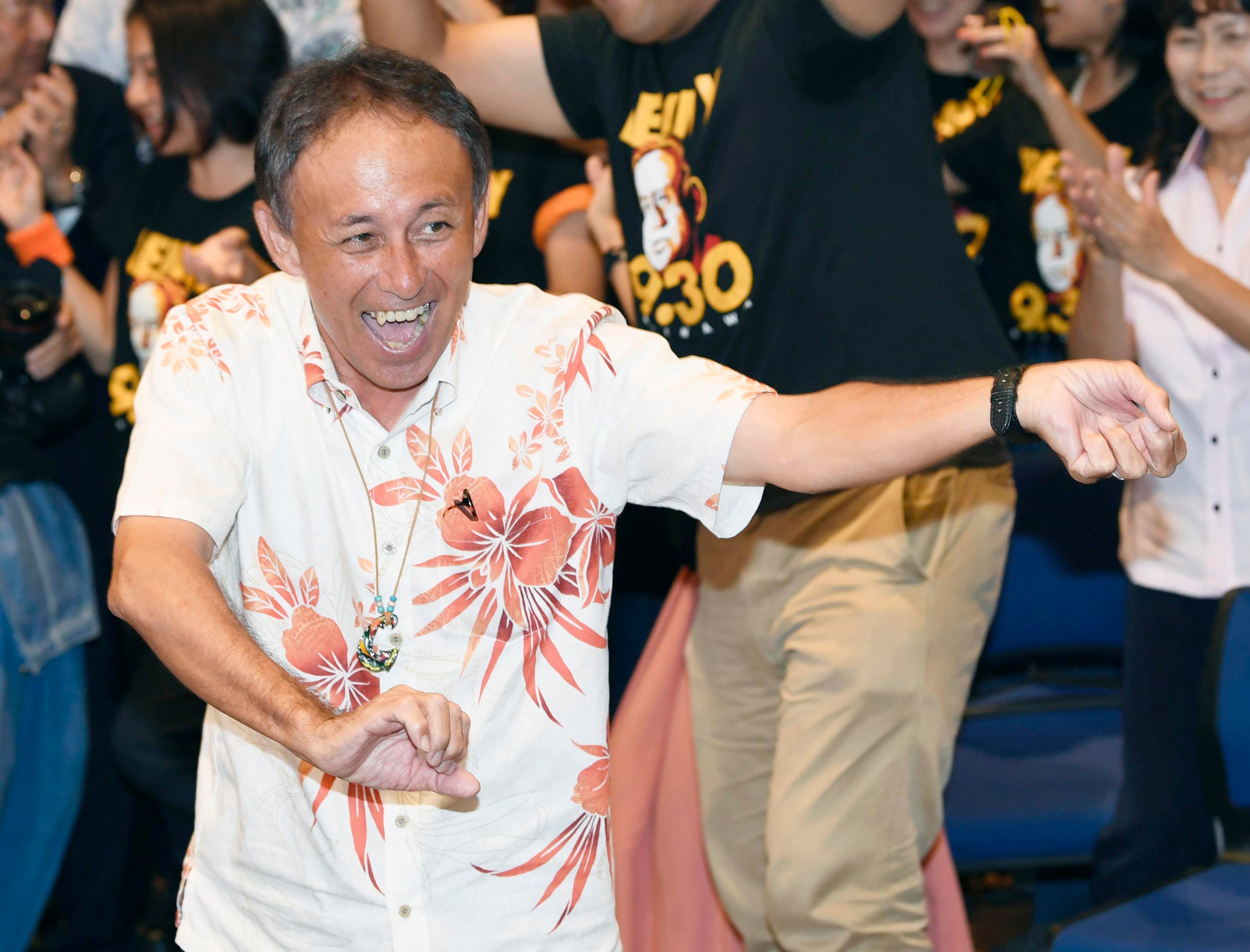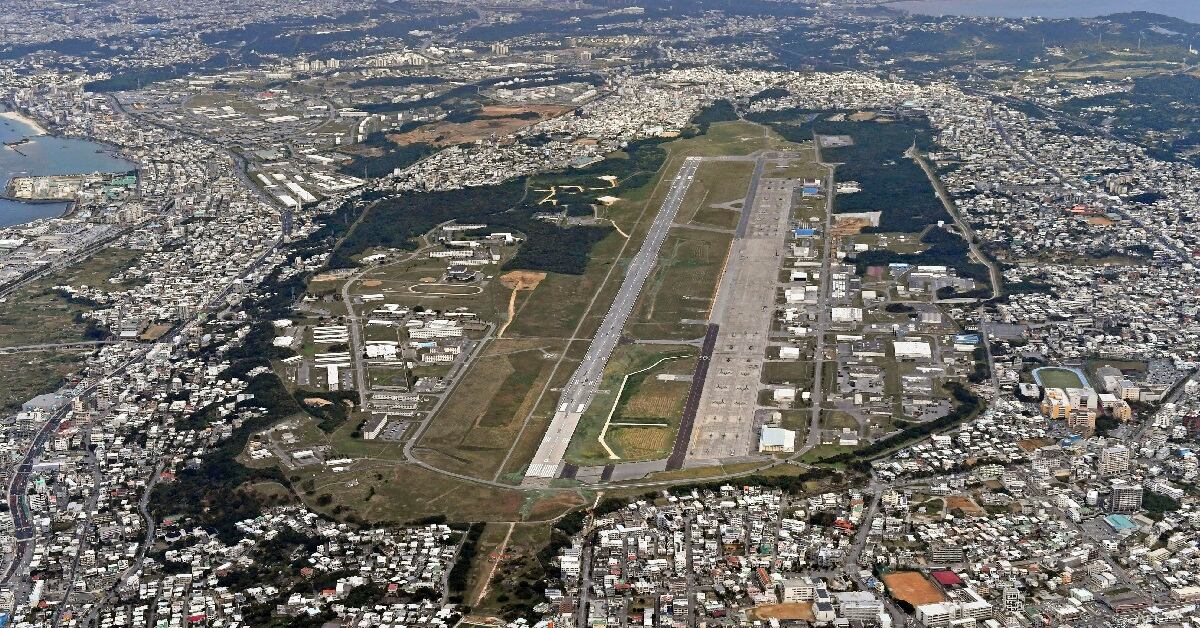TOKYO — The celebratory crowds in Okinawa chanted the unusual first name of the island’s newly elected governor, shouting, “Denny! Denny! Denny!” The scene highlighted one of the first and most important questions for Denny Tamaki: How will he tackle the U.S. military presence in Okinawa as someone who is half American?
Tamaki, 58, is the son of a U.S. Marine and the first person with an American parent to lead Okinawa. He defeated a candidate backed by the conservative pro-U.S. ruling party in Sunday’s election.
At contention was the plan, decades in the works, for a new U.S. air base being built in Henoko on Okinawa’s coast.
Tamaki is an outspoken opponent of the plan to relocate U.S. Marine Corps Air Station Futenma from densely populated Ginowan city to less-crowded Henoko on the east coast. He told voters that he would ask the U.S. and Japanese governments to close Futenma, return the land to Okinawa and move the air station off the island.

His election could further delay the move and prompt renewed calls to reduce the heavy American military presence and the privileges troops have on the island. Tamaki wants to reduce the U.S. military presence on Okinawa and revise the Status of Forces Agreement, which gives U.S. military personnel certain legal privileges.
Achieving those goals will be difficult as the central government takes precedence over the local government on U.S.-Japan alliance issues.
U.S. President Donald Trump and Japanese Prime Minister Shinzo Abe reaffirmed their commitment to pursue the Henoko plan in 2017, calling it “the only solution that avoids continued use” of Futenma. The U.S. and Japan agreed to the return of the 1,100-acre Futenma base after it is moved to a new site in Henoko.
The plan requires 5,900-foot runways in a V-configuration on reclaimed land in Henoko Bay near the U.S. military’s Camp Schwab.
Tamaki said he would talk to the U.S. about how the people of Okinawa have rejected the new air base.
"We are all family on earth," he told reporters. "How we can co-exist in understanding and peace should be our starting point."
Tamaki is also emerging as a new kind of leader, standing for tolerance and diversity, in a nation long known for uniformity and conformity.
His father is a U.S. Marine he has never met. His mother is Okinawan. Little is known about the father, who is believed to have left Japan before Tamaki was born. Dual citizenship is technically illegal for Japanese adults, especially for politicians.
Enormous challenges remain for Tamaki.
The effort to reduce Okinawa's burden of hosting the U.S. forces would mean confronting Japan's national defense policy, which is based on a bilateral security treaty that followed World War II. Japan sees the U.S. as its most important ally and remains highly dependent on the U.S. for defense.
Okinawa houses about half of the 54,000 American troops stationed in Japan and makes for 64 percent of the land space used by the U.S. bases in the country.
The 30 U.S. installations on the small island account for 74 percent of the area used by the U.S. military in Japan, leading Okinawa to protest that it is shouldering more than its share of the burden. Okinawans have complained about the noise, pollution, plane crashes, accidents and crime involving American troops. High-profile sexual assault, drunken driving and other crimes by American personnel in recent years have prompted the U.S. to become more sensitive to the issue and step up disciplinary measures.
The planning for Henoko dates back to a 1995 rape of a schoolgirl in which three American servicemen were convicted.
"It is so symbolic that a man who is part American will be leading the movement against the U.S. bases," said Masaaki Gabe, professor of international politics at the University of the Ryukyus in Okinawa.
Reflecting widespread opinion, Gabe believes Japan will likely try to bulldoze the Henoko construction for a U.S. air base. Many in Okinawa have given up and feel the rest of Japan doesn’t care, he added.
“Denny Tamaki has effectively drawn attention to this extremely complex problem,” he said. “In that sense, he has given us hope.”









